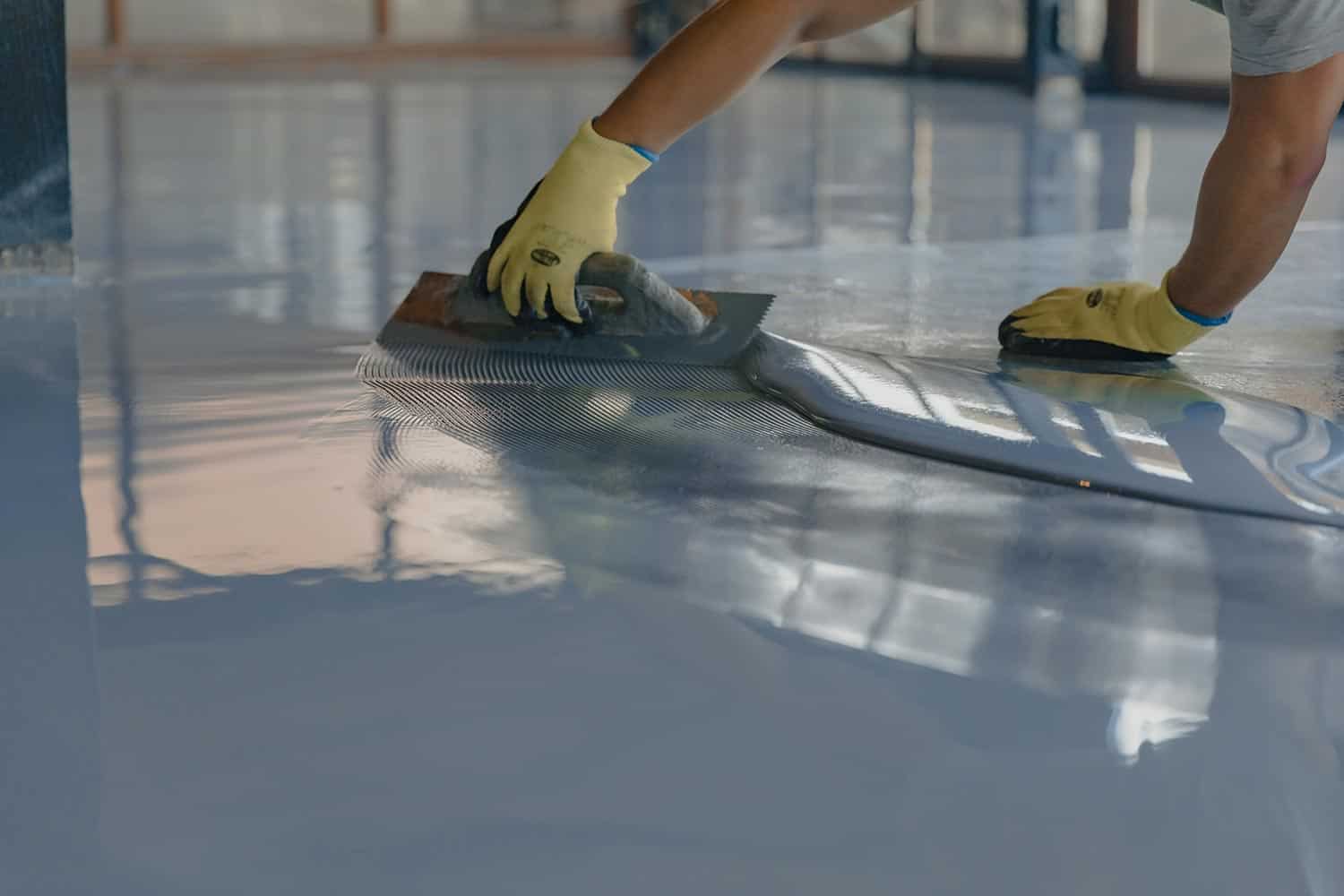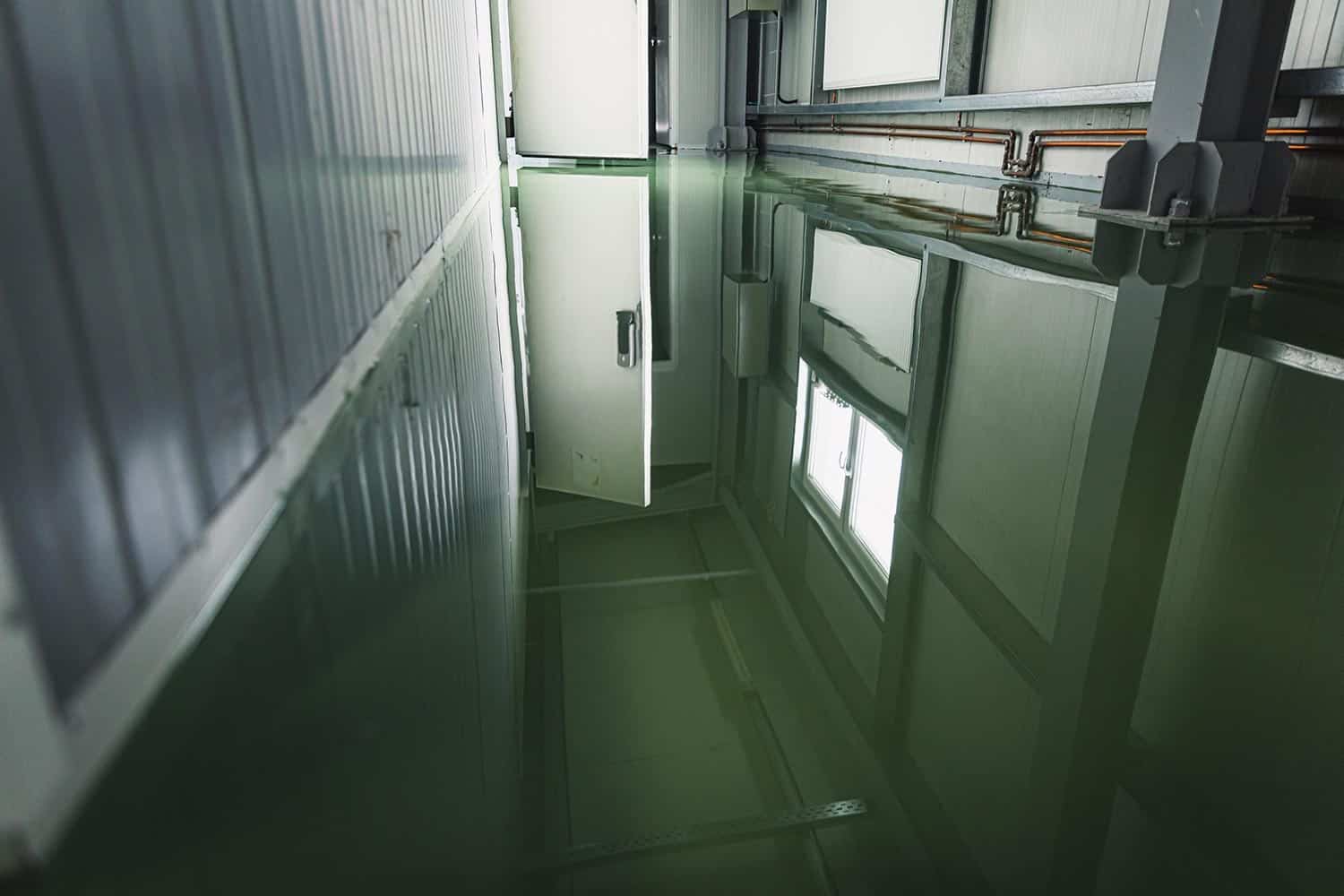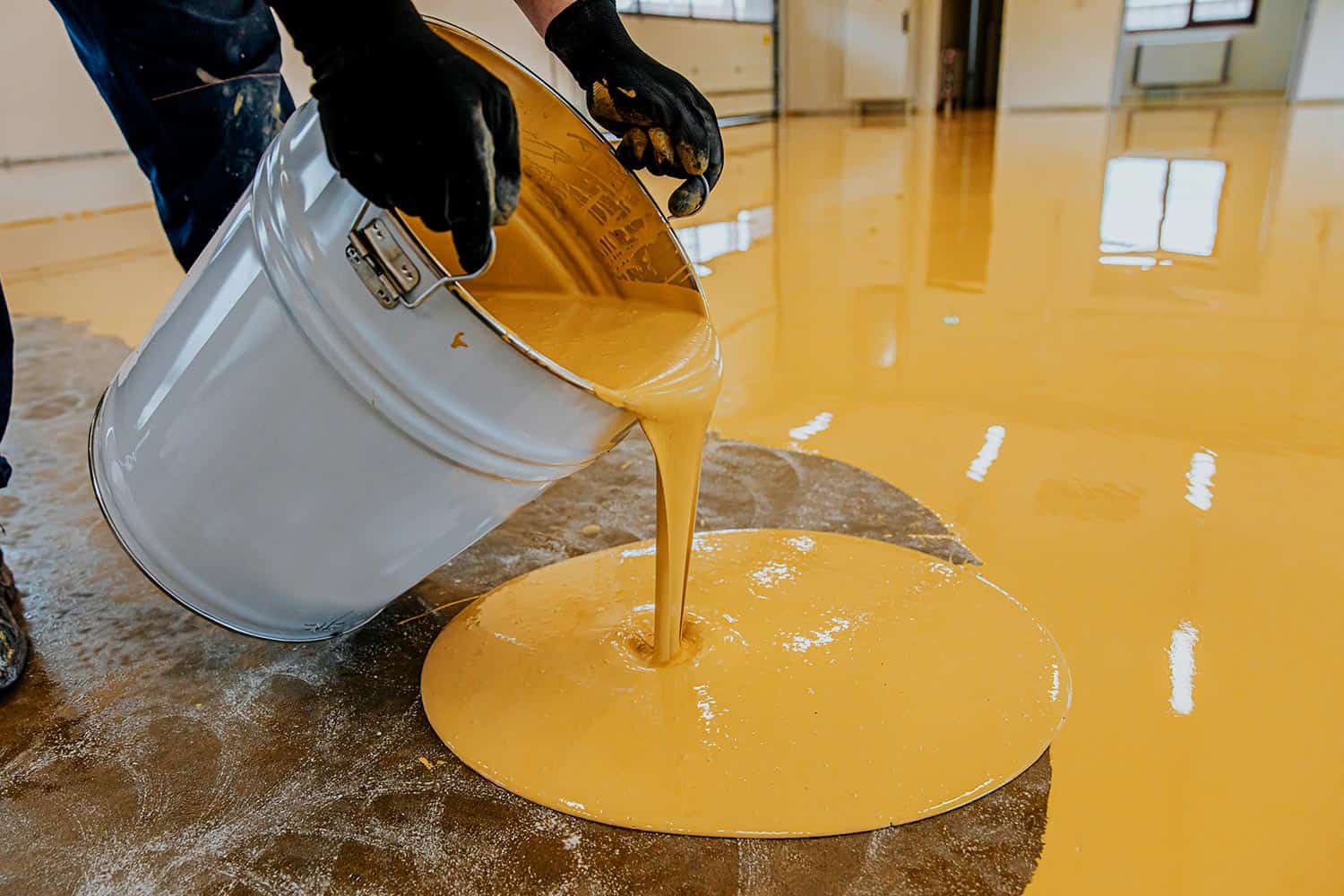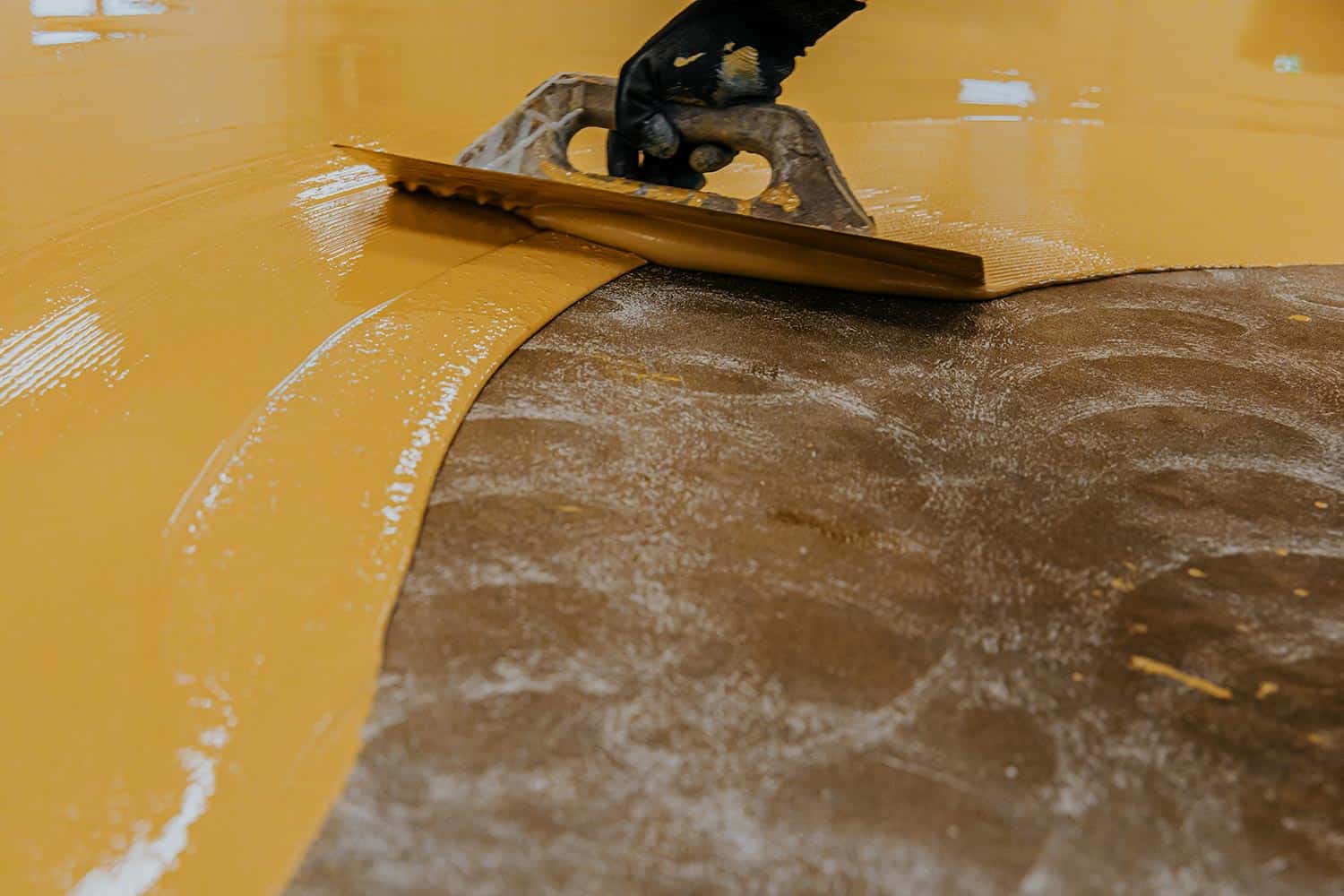Looking into flooring options for your basement? Then you might have heard of epoxy flooring, which has become increasingly popular recently. But is it actually good for your basement? What benefits does it have? Is it worth your financial investment? We've done extensive research and consulted with experts in home improvement to answer these questions for you.
Epoxy flooring is an excellent flooring choice for basements. It has plenty of qualities that are beneficial for this part of your home, such as:
- Durability & reliability
- Protection against moisture
- Resistance to health hazards
- Easy cleaning & maintenance
- Easy installation
- Sleek finish
Still not sure if you want epoxy flooring for your basement? Keep reading because we'll explore each benefit in this post at length. We'll also take a look at the drawbacks of epoxy flooring to help you make the right choice, as well as answer some of your important questions about epoxy.
![Epoxy resin applied to the floor, Is Epoxy Flooring Good For The Basement? [Exploring the Pros & Cons]](https://uooz.com/wp-content/uploads/2022/02/Is-Epoxy-Flooring-Good-For-The-Basement-Exploring-the-Pros-Cons.png)
6 Benefits Of Installing Epoxy Flooring In Your Basement
Epoxy flooring is a two-part system that consists of one part resin and one part hardener. When mixed, these two components will bond with each other and with the sub-flooring to create a tough, plastic-like material.
While epoxy floor coatings are typically applied over concrete garage floors, it's become a popular flooring choice for basements as well! This is because it offers plenty of benefits suited for this particular area.
Here are six of the most important advantages of installing epoxy flooring in your basement:
1. Durability & reliability
One of the main features of epoxy flooring that makes it so popular is its tough, durable exterior. It can outlast wear and tear throughout several years, even with heavy foot traffic. This means it won't crack or peel easily.
Better yet, it also prolongs the life of the flooring underneath it. If you have old or damaged basement flooring, applying epoxy floor coating to it can help refresh and renew it.
2. Protection against moisture
Epoxy is waterproof by nature, which means it doesn't absorb water from spills, leaks, or moisture buildup. This is especially beneficial for basements since this part of the home is close to the ground and can often be quite damp as a result.
This floor coating creates a waterproof barrier that protects the floor underneath from moisture and keeps water from seeping into the foundation of your home. In this way, epoxy flooring prevents water damage that could compromise the structural integrity of your home.
3. Resistance to health hazards
Because basements are typically exposed to moisture, they are at higher risk for mold and mildew. Epoxy flooring can prevent this from occurring since it's resistant to water, germs, and bacteria. This way, it could keep your family from experiencing health issues caused by these hazards.

4. Easy cleaning & maintenance
With its smooth, non-porous surface, epoxy flooring is extremely easy to clean! All you have to do is sweep it up or vacuum it regularly, and the dust and dirt will be swiftly removed off the surface. Stains also won't set in since it's water-resistant, so you'll simply have to mop or wipe off any spills.
5. Easy installation
Did you know that you can install epoxy flooring on your own? Don't worry if you don't have a lot of DIY experience; this task is fairly straightforward. Take note that you will need some tools and that the installation is quite time-sensitive. If you're uncertain about installing it yourself, it's best to have professionals do the job for you.
6. Sleek finish
Offering a sleek, lustrous shine, epoxy flooring can upgrade your basement into a sophisticated space - it's as stylish as it is practical! Even better, it comes in a wide range of colors and patterns that can blend seamlessly with the aesthetic of your home. You can also add marble chips, pumice flakes, and other decorative elements to make it stand out even more.

What are the disadvantages of epoxy flooring?
Like all other flooring options, installing epoxy flooring has certain drawbacks. It's up to you to weigh the pros against the cons, so you can make the right decision for your basement.
Here are some of the disadvantages of installing epoxy flooring:
1. Slippery when wet
Because epoxy flooring doesn't absorb liquids, it can be quite slippery when it's wet from mopping or from spills. This can pose a safety hazard, especially if you have children, elderly individuals, or pets at home.
This problem can be resolved by adding aluminum oxide or shark grip to the flooring. See H&C Sharkgrip on Amazon.
2. Lengthy application with toxic fumes
While the installation itself is somewhat simple compared to the installation of other flooring types, epoxy takes around seven days to fully cure.
In addition, epoxy releases toxic fumes with a strong odor during installation. This can pose a health risk to elderly individuals or anyone with lung problems in the family. If you're already certain about installing epoxy in your basement, don't worry. It won't release these fumes after its installation.
3. Cold surface
Epoxy flooring can be quite cold under the feet, especially when compared to warmer flooring choices like carpet or wood. The good news is epoxy flooring is suitable for underfloor heating as long as you follow the right heating protocol.
3. Temporary flooring
Take note that epoxy flooring is a floor coating, not a floor on its own. This means you'll have to replace it eventually -the frequency of replacements will depend on how much use it gets. However, epoxy flooring can last longer with proper maintenance and touch-ups from professionals.
How long does epoxy floor last in the basement?
Epoxy flooring can last anywhere from 5 to 20 years. Its lifespan will depend on a whole host of factors, including:
- Epoxy thickness
- Quality of the topcoat
- Daily foot traffic
- Condition of the floor underneath it
- Whether the surface was properly prepared before the installation
How long does it take to install epoxy flooring?
Epoxy floor installation takes around two to three days, depending on how much work and preparation needs to be done on your existing flooring. The full curing time for epoxy is usually seven days, but some experts say it's safe to walk on the flooring after 72 hours.

How much does it cost to epoxy basement floor?
On average, it costs around $3 to $12 per square foot to install epoxy floor coating in your basement. The factors that affect the cost include your location, the type and quality of epoxy, and labor costs.
Is epoxy flooring cheaper than tile?
This depends on the type of tile you're installing. Installation of vinyl tiles costs around the same as epoxy flooring installation, while installation of ceramic tiles is more expensive, averaging at around $15 to $20 per square foot.
Will epoxy floors crack?
While epoxy flooring has impressive durability, it does not have a lot of flexibility. This means that when there are shifts in the foundation of your house, cracks can form on your epoxy floor coating. This issue can also be caused by extreme heat or cold or bubbling on the surface due to moisture.
The good news is that this issue can be solved without straining your budget. For minor cracks, use fresh mortar to fill in the gaps until it overflows. Then, use a trowel to smooth out the surface. Let it cure for at least 60 days, then apply a new coat of epoxy.
For major cracks, you'll have to resurface the entire floor. To do this, you need to clean the floor with a broom and use grease-fighting detergent to strip any oils off the floor. Then, patch the gaps or chips on the surface with an epoxy patching compound.
Click here to see this epoxy patching compound on Amazon.
Allow this to cure for a few days. When this is done, you'll need to clean, buff, and vacuum the floor. Apply epoxy paint, then leave to cure for 24 hours before applying a clear epoxy finish.

In Closing
Epoxy flooring is an exceptional flooring choice for your basement. It's durable, waterproof, and protective against health hazards and water damage. Its installation is easier compared to other flooring types, and cleaning and maintaining it won't break your back either. For those concerned about the look of their basement, epoxy flooring can make your space look and feel more sophisticated.
However, epoxy flooring does have its drawbacks. Its surface can be cold and slippery when wet, and its application can take a long time and emit unpleasant odors. Remember that you'll also have to replace it later on. With these advantages and disadvantages in mind, you can decide whether epoxy flooring is right for your basement.
Did you like this article? Check out these other posts that you might enjoy too:
Best Epoxy Coating Products For Concrete Floors [7 Fantastic Choices]


